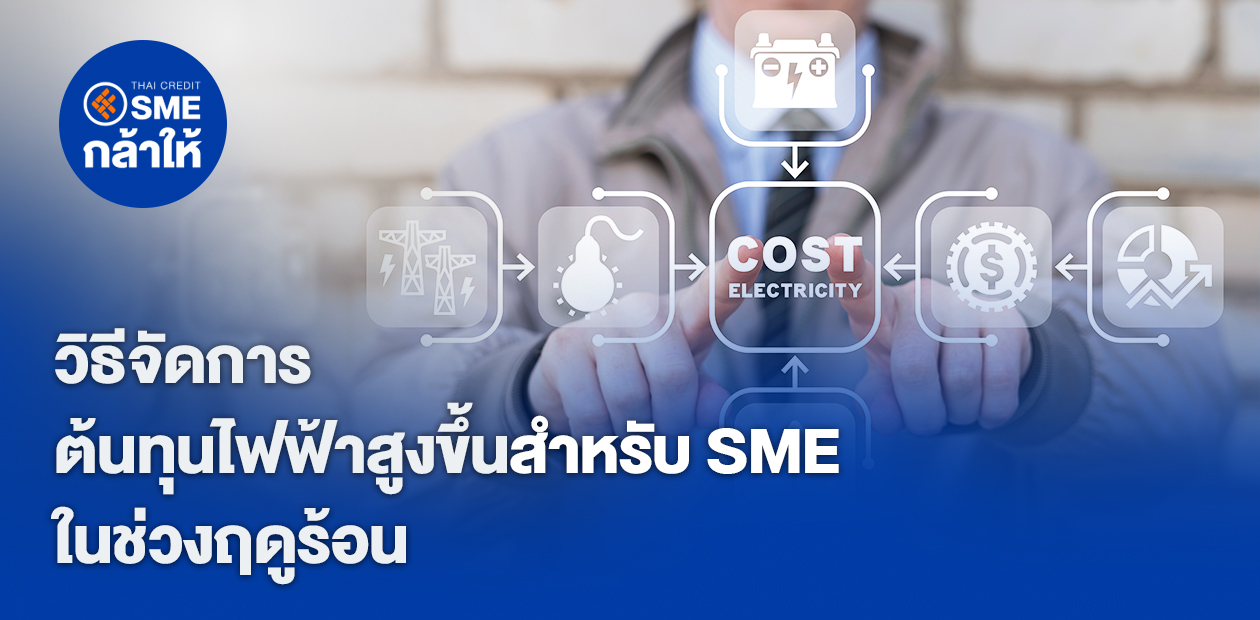13 มี.ค. 2566
SME Trend

As electricity costs continue to rise in Thailand, small and medium-sized enterprises (SMEs) need to adapt to avoid being negatively impacted. In this article, we will discuss some strategies that SMEs can implement to minimize the impact of rising electricity costs on their business.
Conduct an Energy Audit The first step SMEs should take is to conduct an energy audit of their business. This will help identify areas where energy is being wasted and where improvements can be made. An energy audit can include an examination of the lighting, heating, cooling, and ventilation systems, as well as the use of equipment and appliances.
Implement Energy-Saving Measures Once SMEs have identified areas where energy is being wasted, they should implement energy-saving measures. These can include switching to energy-efficient light bulbs, upgrading to energy-efficient appliances, and installing motion sensors to control lighting and other systems.
Embrace Renewable Energy SMEs can also consider embracing renewable energy sources, such as solar panels or wind turbines. While the initial investment may be significant, renewable energy can provide long-term savings and reduce dependence on traditional energy sources.
Educate Employees Finally, SMEs should educate their employees on energy-saving measures and encourage them to be mindful of their energy usage. This can include turning off lights and equipment when not in use, using natural lighting instead of artificial lighting, and adjusting temperature settings to reduce energy consumption.
In conclusion, rising electricity costs can have a significant impact on SMEs in Thailand. However, by conducting an energy audit, implementing energy-saving measures, embracing renewable energy, and educating employees, SME business owners can minimize the impact on their business and reduce their overall energy costs. By taking proactive steps now, SMEs can position themselves for long-term success in an era of rising energy costs.